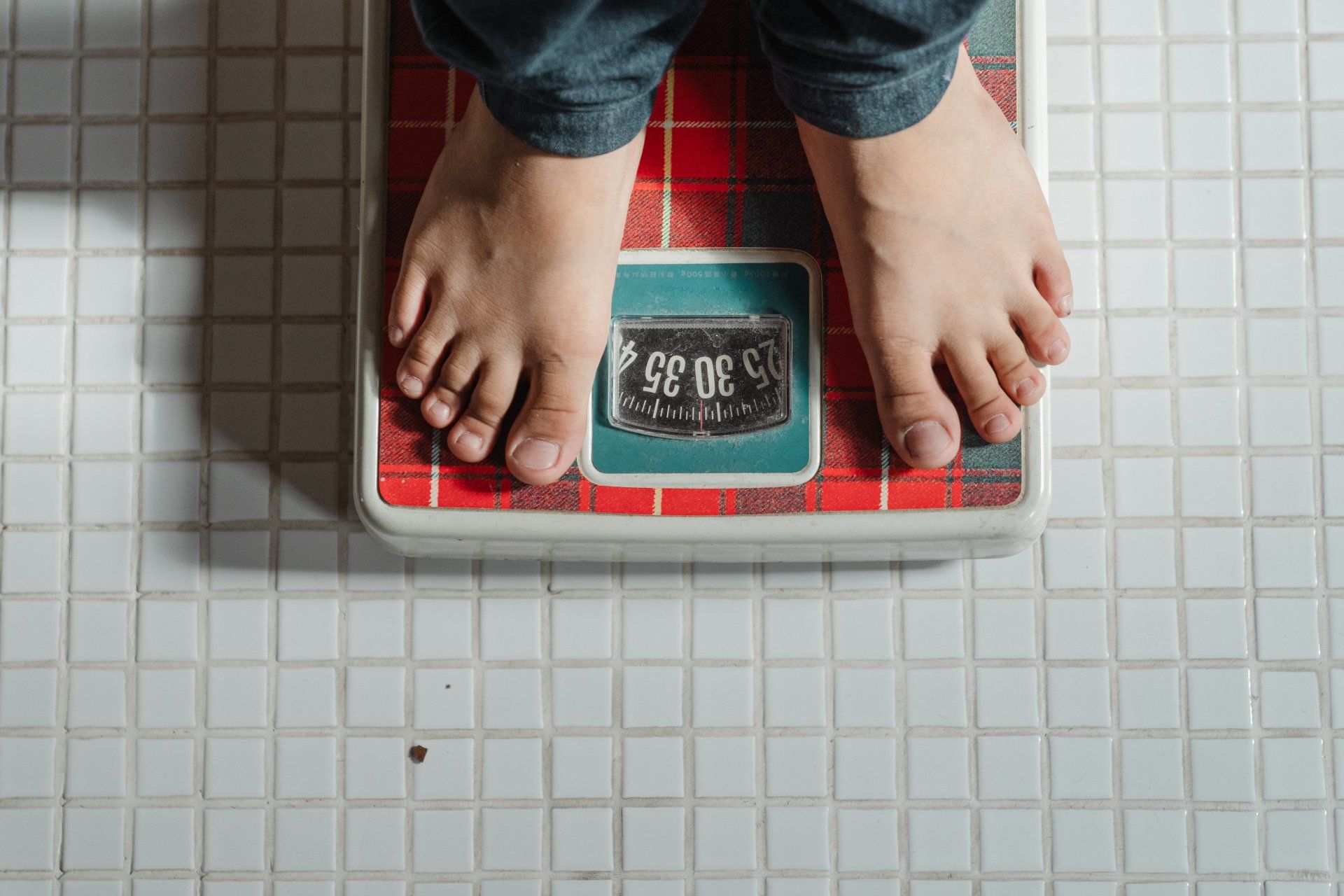9 Tips for Breaking Through Weight Loss Plateaus
You've been sticking to your plan, eating right, moving more, and seeing progress. Then, suddenly, the scale won't budge. Frustrating? Absolutely. Uncommon? Not at all. Hitting a weight loss plateau is a normal part of any weight loss journey, but that doesn't make it any less discouraging.
At first, the pounds seem to drop quickly, largely due to water loss and initial metabolic shifts. But over time, your body adapts. Your metabolism slows, your hormones shift, and your body becomes more efficient at holding on to energy. This is its way of protecting you from perceived starvation.
Whether you're following a strict diet, ramping up exercise, taking weight loss medications like GLP-1 receptor agonists, or even recovering from bariatric surgery, a plateau will happen at some point.
The good news? It doesn't have to be permanent. Understanding why it happens is the first step to pushing past it.
#1 - Reassess Your Diet and Adjust Caloric Intake
When progress stalls, the first thing to check is your food intake. Are you eating the same portions you were when you started? It's easy for extra bites, larger servings, or hidden calories to sneak in over time. Research shows that tracking what you eat can reveal small changes that may be slowing you down and help you stay on track.
On top of that, your body's calorie needs shift as you lose weight. A smaller body requires fewer calories, meaning what worked before might not work now. To keep the weight loss going, you may need to adjust your intake slightly (just be careful not to go too low). Dropping below 1,200 calories per day can trigger extreme hunger, slow metabolism, and increase the risk of muscle loss.
Speaking of muscle, make sure you're eating enough protein. Protein helps maintain lean mass and supports a higher metabolism, making it a critical player in breaking through a weight loss plateau.
#2 - Increase Physical Activity and Add Strength Training
Increasing your physical activity, either by moving more throughout the day or upping the intensity of your workouts, can help break through a weight loss plateau.
One of the best ways to rev up your metabolism is strength training. Studies show that lifting weights or doing bodyweight exercises helps preserve muscle, which in turn keeps your metabolic rate higher. More muscle means more calorie burn, even at rest.
But don't stop there. Non-exercise activity counts, too. Take the stairs, stand up more often, walk while on phone calls. Small changes add up. The goal is to get your body burning more energy throughout the day, not just during workouts. The more you move, the better your chances of pushing past a weight loss plateau.
#3 - Cut Back on Refined Carbs and Processed Foods
Carbs aren't the enemy, but they can make or break your progress, especially if you're consuming too many refined ones. White bread, sugary snacks, and processed foods can spike blood sugar, increase cravings, and lead to water retention, all of which can stall weight loss.
Cutting back on refined carbs may help your body burn fat more efficiently, particularly if your metabolism has slowed down due to adaptation. Doing this doesn't mean eliminating carbs completely. Just make sure you're prioritizing whole, fiber-rich options like vegetables, legumes, and whole grains.
A small shift in your diet could be the jumpstart you need to push past a weight loss plateau.
#4 - Try Intermittent Fasting or Adjust Meal Timing
Sometimes, a weight loss plateau may occur due to when you're eating. Intermittent fasting can help regulate appetite hormones, improve metabolic flexibility, and give your body time to tap into stored fat for fuel.
The best part? There's no one-size-fits-all approach. Some people thrive on a 16:8 schedule (fasting for 16 hours, eating within an 8-hour window), while others prefer alternate-day fasting or even occasional 24-hour fasts. Whatever you choose, staying consistent is key.
So, if you've hit a weight loss plateau, adjusting your eating window might be the shift your body needs to start shedding pounds again.
#5 - Manage Stress and Improve Sleep Quality
Stress and lack of sleep can quietly sabotage your weight loss efforts. When you're stressed, your body releases cortisol, a hormone that signals your system to hold onto fat, especially around your midsection. High cortisol levels can drive cravings for sugary, high-calorie foods, making it harder to stay on track.
Sleep is just as important. Poor sleep disrupts hunger hormones like ghrelin and leptin, making you feel hungrier and less satisfied after meals. Aim for 7–9 hours per night.
Managing stress through meditation, deep breathing, or even a short daily walk can help lower cortisol and push past a weight loss plateau.
#6 - Stay Hydrated and Avoid Alcohol
Water is one of the simplest yet most overlooked tools for breaking through a weight loss plateau. Even mild dehydration can slow metabolism, reduce energy levels, and make your body hold onto excess water weight.
Alcohol can contribute to dehydration as well. It also hinders fat metabolism, adds empty calories, and lowers inhibitions, making it easier to overeat. A few drinks here and there might not seem like a big deal, but they can quietly stall progress and contribute to a weight loss plateau.
#7 - Consider Weight Loss Medications
For some, diet and exercise alone aren't enough to overcome a weight loss plateau or achieve any weight loss at all. That's where weight loss medications like GLP-1 receptor agonists like semaglutide or tirzepatide can help. These drugs regulate appetite, slow digestion, and improve metabolic efficiency, leading to steady weight loss.
But even these medications aren't immune to plateaus. Most people taking GLP-1s stop losing weight between 9 and 12 months as the body adapts to the lower calorie intake. If that happens, adjustments may be needed. Switching medications, increasing the dose of a medication, tweaking macros, or adding strength training can help sustain progress.
However, even with the support of a weight loss medication, maintaining weight loss and pushing through normal weight loss plateaus requires long-term lifestyle changes.
# 8 - Focus on Non-Scale Victories and Reframe Success
It's also important to remember that the scale tells only part of the story. Weight loss isn't only about the number staring back at you. It's about how you feel, move, and function. Maybe your clothes fit better. Maybe you're lifting heavier at the gym or have more energy throughout the day. These are all signs of progress.
Body composition matters, too. As you build muscle and lose fat, the scale might not move, but your body is still changing. Instead of obsessing over the numbers, track inches lost, strength gains, and even how confident you feel.
#9 - Be Patient and Stay Consistent
Weight loss is like a winding road with ups, downs, and plateaus along the way. Progress may stall, but that doesn't mean it's over.
Small fluctuations are normal. Your body is constantly adjusting, holding onto water, building muscle, and recalibrating. What matters most is maintaining healthy habits, even when the scale doesn't budge (NCBI).
A weight loss plateau is simply a phase. It is not a failure. Stick with it, adjust where needed, trust the process, and stay consistent.
Don't Let a Weight Loss Plateau Hold You Back
Sustainable weight loss isn't about quick fixes or always being perfect. It's about persistence, small adjustments, and a balanced approach to diet, exercise, and mindset.
If you need a bit of support on your weight loss journey, we are here to help. Find a Slim4Life Weight Loss Clinic near you or contact us about our virtual program.





